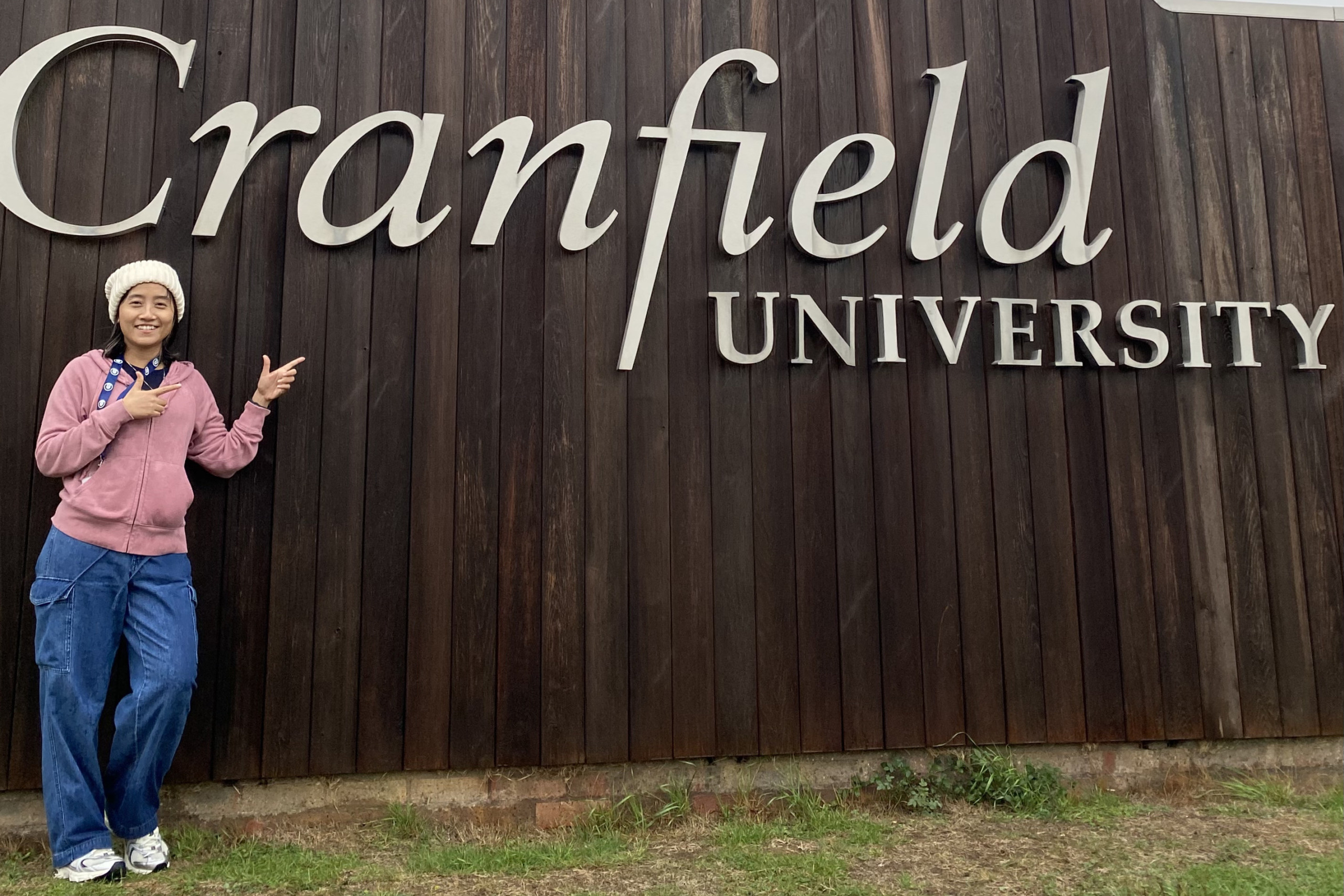A society for all?
14/07/2016

Eighteen months or so before the 2015 General Election, I suggested to a senior Government minister that the Conservatives should address the debates about the need to renew capitalism in the forthcoming election. It was not a successful meeting. The minister politely but firmly dismissed the idea. He clearly thought I had “gone native” in academia’s “Ivory Towers.”
Fast forward to July 2016. The new UK Prime Minister in her first (and last, as it turned out) leadership campaign speech, calls for “A country that works for everyone, not just for the privileged few” and for responsible capitalism and curbs on executive pay and rapacious takeovers.
Theresa May’s demand for more responsible capitalism reflects an emerging political consensus about one of the underlying causes of the Brexit vote. Namely, that many people who have lost out in the rapid globalisation of recent decades saw an opportunity to express their anger with an “Establishment” perceived to have taken all the benefits of globalisation. This was compounded by the perception of an elite unaware of, and indifferent to, the plight of the have-nots.
The ever-thoughtful Financial Times columnist Philip Stephens summed up this analysis straight after the Brexit vote: “The outcome was shaped as much as by a revolt against globalisation as by the peculiar British antipathy towards the Eurocrats of Brussels…Across advanced democracies politics has been soured by resentment against wealthy elites. Look across Europe, or across the Atlantic to Donald Trump’s Republican presidential campaign, and you see the same seething discontent about globalisation, migration and cuts in welfare.” (Brexit: a vote that changes everything – June 24th).
In a further posting later the same day, Stephens added: “What Americans call the “takeaway” from the referendum can be summarised in one short phrase: globalisation is not working. Big business has become bad political news…For a decade or so the badly skewed distribution of the gains from globalisation and widespread tax-evasion on the part of big business were camouflaged by buoyant economic growth. Since 2008 the unfairnesses have been amplified by austerity: the wealthiest one per cent have been barely touched.” He concluded with this stark warning “politicians must confront the excesses. If they want to save liberal democracy, they will have to reform capitalism.” (How a cautious nation came to tear down the political temple – June 24th).
In retrospect, the evidence was there before June 23rd for those who chose to see it. City grandee Sir Mike Rake told a responsible business conference back in March that only 32% of the UK public thinks business acts ethically and only 57% think business contributes to society. Rake warned “people feel this is an era run for the benefit of elites.” (Better Business Blueprint Conference – March 17th).
Popular anger at the Global Financial Crisis of 2007-8, the ensuing austerity and a sense that irresponsible bankers and businesses have not been held to account has fuelled waves of popular protest: the Occupy movement, new political forces like Italy’s Five Star Movement, Greece’s Syriza and Spain’s Podemos, the Trump and Sanders phenomena, and now Brexit. To be clear, I am not saying Brexit was only because of this anti-elites, anti-globalisation sentiment but like Philip Stephens, I do argue it was an important element.
It is encouraging that the new Prime Minister has picked up on this already. The specific Theresa May proposals such as for worker and consumer representatives on boards may, or may not, be the right solutions but her analysis that something is seriously broken, is sound.
The good news is that many individuals, organisations and initiatives have been focussed on renewing capitalism and rethinking prosperity, for some time. Some of these are formal initiatives such as Better Business Blueprint, originally from the Archbishop of Westminster. Others are workstreams around a “manifesto” such as McKinsey managing partner Dominic Barton’s “long-term capitalism”. Some pre-date the global financial crisis, such as Tomorrow’s Company; others have emerged in the aftermath, like Al Gore and David Blood’s “sustainable capitalism”.
Some, such as Lady Lynn Forester de Rothschild, seek to engage businesses in education and enterprise projects to create a more inclusive capitalism. Others, including the MBA Oath or the Forward Institute, are seeking to provide tomorrow’s global business elite with a personal code and experience to be more responsible capitalists. Some of the business-led corporate responsibility coalitions like the World Business Council for Sustainable Development are asking how nine to ten billion people can live reasonably well within the constraints of one planet by mid-century, and what new business models might help address this. Initiatives such as Conscious Capitalism bring together business people, academics and other interested parties.
Cranfield University’s Doughty Centre for Corporate Responsibility has mapped more than 130 distinct organisations, initiatives and time-limited projects concerned either explicitly or implicitly with the renewal of capitalism. Many more initiatives and projects – including a range of grassroots movements – have been identified in parallel mapping exercises such as http://realeconomylab.org/.
Jules Peck , the convenor of the Real Economy Lab, is now working on another project: The B Team’s Great Transformation Collaborative. This aims to “bridge between the progressive mainstream ‘top-down’ world of business, WEF, WBCSD etc and the more marginal and radical bottom-up next economy theory and practice world of things like the sharing, commons, p2p, social solidarity and cooperative economy. The bridging we seek to do is to make sense of everyone’s visions, practices, policy ideas and roadmaps for a new economy for 2050 and to find common cause.”
There is no shortage of ideas for how to create a more inclusive, responsive, sustainable and long-term form of capitalism and society.
These include work to encourage for-profit businesses to define and live a societal purpose rather than clinging to the increasingly discredited idea that the purpose of business is maximising shareholder-value.
Optimising shareholder-value over the medium to long-term should be the consequence of a well-run business, but not its purpose. See for example The Doughty Centre White Paper for Coca-Cola Enterprises Combining Profit with Purpose 2014. See also particularly the work of the charity Better Business Blueprint and The Purposeful Company – Interim Report from Big Innovation Centre (May 2016).
There is increasing interest – as the think tank Tomorrow’s Company has identified – in encouraging greater heterogeneity of business forms and models such as B-Corps, mutuals and employee-owned businesses like John Lewis Partnership.
Legal & General CEO Dr Nigel Wilson is heading up an Executive Remuneration Working Group for The Investment Association to consider how best to curb excessive executive pay. See also the work of Stefan Stern and the High Pay Centre.
PLCs are being encouraged to work to change the composition of their share-register so as to have a higher proportion of long-tern share-holders rather than short-term share-traders. Some are suggesting incentives for such stewardship investing such as additional voting rights and/or enhanced dividends. Adrian Wooldridge-Schumpeter in The Economist newspaper – discussed some of these ideas: Taking the long view: The pursuit of shareholder value is attracting criticism—not all of it foolish: Nov 24th 2012.
Repeated surveys from the major global consultancies report increasing numbers of corporate CEOs and businesses committing to corporate sustainability which the Doughty Centre defines as: “a business commitment to sustainable development, and an approach that creates long-term shareholder and societal value by embracing the opportunities and managing the risks associated with economic, environmental and social developments.” And as last month’s UN Global Compact-Accenture CEOs’ Sustainability Survey 2016 showed very clearly, the Sustainable Development Goals – launched by the international community last September are already providing a strategic framework for leading businesses when it comes to embedding sustainability.
As Larry Fink – CEO of Blackrock, the world’s biggest institutional investor, wrote to S&P CEOs in January: “Generating sustainable returns over time requires a sharper focus not only on governance, but also on environmental and social factors facing companies today. These issues offer both risks and opportunities, but for too long, companies have not considered them core to their business – even when the world’s political leaders are increasingly focused on them, as demonstrated by the Paris Climate Accord.”
Social media and global connectivity is enforcing far greater transparency on governments and on business – as Wiki-leaks, Edward Snowden and numerous corporate scandals demonstrate, Governments, accounting bodies, listing authorities and major investors can accelerate this trend for greater corporate transparency and accountability, by endorsing and requiring standardised corporate reporting of their environmental, social and governance impacts. Organisations such as the Global Reporting Initiative, Integrated Reporting, CDP formerly Carbon Disclosure Project, ShareAction, Sustainable Stock Exchange Initiative and the Corporate Sustainability Reporting Coalition are creating the resources for this to happen.
So, rather than becoming pre-occupied with the detail of Mrs May’s proposals on Monday, we should be focussing on the opportunity that her interest in the topic might create. How are globalisation and its discontents addressed?
Almost thirty years ago, the UK’s first female Prime Minister won a third successive general election. On election night, she told her jubilant supporters: “and now for those Inner Cities.” It was not clear from the context whether Mrs Thatcher was telling her supporters that next time she wanted to win urban constituencies that she had failed to do in 1987 – or whether she was signalling that her re-elected government would give more attention to urban deprivation. No matter, next morning, Stephen O’Brien, the entrepreneurial CEO of the responsible business organisation Business in the Community, wrote to the PM, praising her vision at the moment of her triumph, and promising the help of BITC and its member companies to tackle urban deprivation in partnership with the Government. Mrs Thatcher – whatever her original intention – responded positively and there began a concerted drive to improve the inner cities.
Post-referendum, there are many activated citizens, wanting to do something positive. Post-referendum, British politics has been dramatically shaken up. There is an opportunity for a national and maybe even international conversation about how globalisation can be made to work for the many and not just the few: how to create a fairer, more inclusive, responsible and sustainable society. Politicians across the spectrum should be engaged in this conversation – but the topics are far too important just to be left to the politicians! NGOs, think-tanks, trade unions, social entrepreneurs, business, academics, faith groups – and active citizens – need to be engaged. Ideally, it would involve both physical meetings but also on-line, digital debates.
However it is done, we need to take this opportunity for fundamental change now.
Categories & Tags:
Leave a comment on this post:
You might also like…
Automotive Engineering: From student to hypercar innovation at Rimac
We sat down with recent graduate Thomas Perrin, to discuss how his year on the MSc in Automotive Engineering at Cranfield University propelled him from the lecture hall directly into the ...
What this year at Cranfield really meant to me
Every Cranfield journey is unique. In this alumni reflection, Zachea Scicluna shares what her year at Cranfield truly meant, from facing uncertainty to gaining hands-on experience in industry-backed projects. I’ve been reflecting (and delaying) ...
Preparing for assignments and exams?
Sorry! We know it seems a bit mean to mention the exams in January rather than looking forward to the break before it! However, we know many of you will be thinking about your forthcoming ...
Screening for FTSE 100 companies on Bloomberg
So you’re researching an index and need some data on its constituent companies? Bloomberg’s Equity Screening tool makes light work of this, not just for the FTSE, but for indices, exchanges and sectors worldwide. Type EQS ...
Accelerating my future: How Cranfield put me on the fast track to automotive safety innovation
Hello! I’m Michaela Kaiser, and I’m thrilled to share my journey studying abroad. I’m from Calgary, Canada, and I recently graduated from Cranfield’s MSc Automotive Engineering course. My path to Cranfield ...
From Myanmar to Cranfield: My path to Renewable Energy
As someone who is passionate about sustainability, my career goal is to build a path in the renewable energy sector. My aspirations comes from the benefits of developing sustainable energy sources and ensuring energy ...







The blog post touched on something deeper than a re definition of capitalism. I think it is more about elites and society generally . At the moment I am re reading the Social Contract ( Rousseau) which is a good reminder of how disconnected those in power are from their base ( in more than one meaning of the word) constituents. The referendum was a reminder that perhaps there needs to be a re connection and perhaps a redefinition of Human Capital into Human Capability and a recognition that Capitalism can be re defined by the type of contracts we have amongst ourselves. The problem here is that this redefinition gets caught up in the political debate about state interference. Think tanks like Tomorrows company have long since talked about re balancing capitalism. Politicians work on short term election driven timeframes- hardly a recipe for sustainability or the long view..